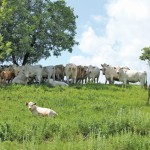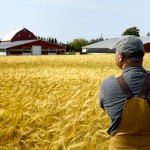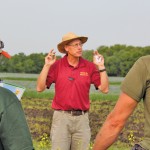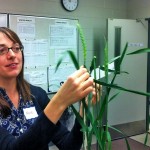
Tag Archives Sustainable agriculture

Manure improves organic forage-grain crop production
‘Experimental lakes of agriculture’ find organic crops can produce on par with conventional crops

Conservation and livestock can be a good mix
While intensive livestock production can cause waste and nutrients to pile up, mixed farms are better able to recycle nutrients

Editorial: Who is confused? How consumers view agriculture

2014 Crop Diagnostic School sold out
The diagnostic school continues to evolve to meet the needs of Manitoba agronomists

Farmer panel discusses 4R nutrient stewardship
There could a fifth ‘R’ in sustainable nutrient management — the right economics
Conservation not a hippie delusion
Small-scale farmers can implement conservation agriculture and improve soil health in developing areas, often by using a mix of science and local knowledge
Looking below the surface

Biotech has role in conservation
No need to be technology averse when it comes to conservation agriculture and improving soil health

Conservation agriculture gaining ground
But breaking through tradition is difficult

U of M project puts DIY back into plant breeding
DIY has done wonders in the metal shop. Why not try it in the fields, too?


